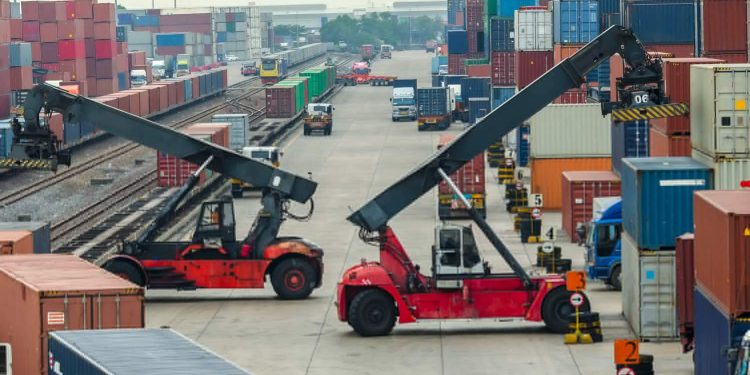BY MARTINS UBA NWAMADI
In 1995, Nigerian Shippers’ Council hunting for knowledge and excellence, in conjunction with National Judicial Institute (NJI) stunned the Nigerian Maritime Community with a world class talk shop identity to be known as International Maritime Seminar for Judges (IMSJ). The conceptual framework of the maritime seminar for Judges was not only to redefine the huge yawning gap and deficit in our admiralty Justice System in Nigeria but also to create a sustainable and convivial environment for maritime operators to develop local content while providing best global practices in trade facilitation.
As we enter into an era of open door economic policy, trade liberalization and the emergence of the African Continental Free Trade Area (AfCTFA) with various economic and trade agreements among nations, the need to develop laws that will bring optimism in the discharge of maritime related cases cannot be over emphasized.

Maritime law is complex and a highly specialized yet commercially important area of the law that judicial officers, maritime law practitioners and other stakeholders should on regular basis be conversant with. The seminar, given its impact in the society, has created a forum for robust discussion, debate and cross fertilization of ideas on significant maritime issues between participants drawn from different parts of the world.
It is in pursuance of this quest that from Tuesday July 5 to Thursday July 7, 2022, international jurists, supreme court justices from Nigeria and some parts of Africa, as well as notable maritime lawyers, will assemble in Abuja for the 16th edition of the seminar.
According to Emmanuel Jime, a lawyer and executive secretary/CEO, Nigerian Shippers’ Council, the seminar is primarily aimed at updating the knowledge of judges and justices of superior courts of record, lawyers and other people operating within the maritime industry on contemporary issues and developments in maritime law and practice
As Nigeria’s international trade experiences significant growth, more maritime cases, especially in the area of shipping, come before the courts for adjudication. The fact that most of the judges of the superior courts of record were not taught maritime law in school made it difficult for the judges to cope with the ever increasing complex and dynamic maritime law cases brought before them for adjudication. The judges then had to carry out rigorous and tortious research in order to get a firm grasp of the facts of the cases brought before them. But the seminar has totally changed this perspective and has tremendously helped in the development of maritime law in Nigeria.
Secondly, the seminar has also contributed greatly towards the reduction of time within which maritime cases are disposed of by the courts. In fact, this has also resulted in huge savings for the Nigerian business community who hitherto had their cases moored in the courts for months. According to Barrister Jime, this year’s edition promises to be exciting, engaging and illuminating given that the COVID–19 pandemic disrupted the 2020 edition.
Some of the thought provoking topics and seminal papers on the front burner are ‘Application of Torts and Bailment in Bill of Lading Contracts’, to be delivered by Olumide Sofowora, a senior advocate of Nigeria (SAN); ‘Current Issues in Port Operations (Standard Operating Procedure) in Ports and Arising Legal Issues’; ‘Nigerian Customs E–Vin Valuation Method, Matters Arising’; ‘Current Issues in Maritime Adjudication and Practice’; ‘Alternate Dispute Resolution and Arbitration’ by Adedoyin Rhodes–Vivour, also a SAN; ‘The use of Technology in the Resolution of Maritime Disputes’; while Luke Zadkovich, a New York based international attorney, will take on the topic, ‘International Law and Practice on Crew Wages’.
Sharing his perspective on the gains of International Maritime Seminar for Judges, the immediate past executive secretary of Nigerian Shippers’ Council, who has seen it all from conception to the 15th edition, Barrister Hassan Bello, attests that Nigeria and some African countries have benefited immensely from the seminar series. The seminar played a key role in the adoption of the Hamburg Rules as the international carriage regime governing carriage of goods by sea to and from Nigeria; the review of the Merchant Shipping Act, the regulation of freight forwarding practice in Nigeria, the massive reforms at the seaports, including the concession of the ports, appointment of Nigerian Shippers’ Council as ‘Economic Regulator’ for the ports and the Amendment of the Admiralty Jurisdiction Act (AJA) are some of the achievements so far recorded. All these have greatly improved in the maritime industry and have equally brought a positive image to Nigeria as a global maritime country.
On his expectations for this year’s edition, Bello who is one of the cerebral maritime lawyers in the country, believes that with the array of contemporary topics lined up, this edition will further deepen the admiralty justice system in Nigeria given the strategic position maritime occupies in our national economy.
Martins Nwamadi, a media practitioner, has a deep interest in maritime affairs.







